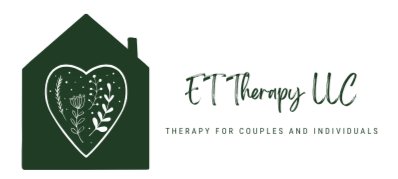Postpartum Anxiety: How Do I know If I have It?
As a new mother, you’ve likely heard of postpartum depression, but postpartum anxiety often flies under the radar. Yet this condition affects up to 20% of new mothers, causing excessive worry, racing thoughts, and physical symptoms that can interfere with daily life. Postpartum anxiety is a super common yet often overlooked condition that can affect new mothers alongside or independently of postpartum depression. The abrupt hormonal changes following childbirth, particularly the sharp decrease in estrogen and progesterone levels, can heighten stress sensitivity, leading to feelings of overwhelming fear or panic.
If you find yourself constantly on edge, unable to relax, or plagued by intrusive thoughts about your baby’s safety, you may be experiencing postpartum anxiety. Sleep deprivation, an inevitable part of caring for a newborn, can exacerbate these feelings. First-time mothers may find the newfound responsibility of infant care particularly daunting, intensifying their anxiety. The instinct to protect and ensure the baby’s safety can become all-consuming, further fueling anxious thoughts. Recognizing the signs is the first step toward getting help and feeling like yourself again.
How Do I Know I Have Postpartum Anxiety?
While many are familiar with postpartum depression or the “baby blues,” fewer recognize that extreme anxiety, persistent worry, or panic attacks can be equally common postpartum experiences. It’s so important for new parents to understand that these feelings are common and that help is available. Recognizing postpartum anxiety can be challenging, as the symptoms often overlap with the normal stresses of new parenthood. However, certain signs may indicate you’re experiencing more than typical new-mom worries.
Physical Symptoms
You might notice changes in your body, such as a racing heart, rapid breathing, or chest pain. These physical manifestations can be accompanied by nausea, dizziness, shaking, and alternating chills and hot flashes.
Emotional and Mental Signs
Emotionally, you may feel a persistent sense of dread or danger, as if something terrible is about to happen. Your thoughts might race uncontrollably, focusing excessively on your baby’s health, development, or safety. You might have intrusive thoughts about harming your baby, even though this is the last thing you want to happen. It’s common to feel overwhelmed by stress and doubt your ability to be a good parent.
Behavioral Changes
Do you ever find yourself unable to sleep or relax once you get your baby down for a nap? New parents are often told “sleep when the baby sleeps” but this can be easier said than done. Insomnia or difficulty sleeping, despite exhaustion, is common. You might feel constantly on edge or agitated, unable to relax even when your baby sleeps peacefully. These symptoms can significantly impact your daily life and ability to care for yourself and your baby.
If you recognize these signs in yourself, reaching out to a healthcare provider for support and guidance is crucial.
Difference Between Postpartum Anxiety and Normal New Parent Worry?
Postpartum anxiety goes beyond typical new parent worries, manifesting as intense, persistent concerns that often lack a rational basis. While it’s normal to feel some apprehension as a new parent, postpartum anxiety takes these worries to an extreme level and interferes with your functioning. For example, you might constantly fret about your baby’s development, even when all signs point to normal growth.
Irrational Fears and Excessive Vigilance
If you’re experiencing postpartum anxiety, you may develop irrational fears about your baby’s well-being. For instance, you might interpret every cry as a sign of pain or illness despite knowing that crying is normal communication for infants. You may feel compelled to check on your baby constantly, even staying awake all night to monitor their breathing. These behaviors surpass typical parental caution and can significantly impact your daily life and emotional well-being.
Extreme Scenarios and Constant Worry
Postpartum anxiety often involves imagining extreme, unlikely scenarios. You might find yourself preoccupied with thoughts of potential harm coming to your baby, such as break-ins or kidnappings, even in safe environments. This constant state of worry and hypervigilance distinguishes postpartum anxiety from normal parental concerns, which are typically more measured and realistic.
Recognizing the signs and symptoms of postpartum anxiety is essential for seeking help and starting the healing process. If you are struggling, therapy is an evidence-based method for dealing with postpartum anxiety that can help make your life easier. Getting help isn’t a sign that you’re a bad mom or that you can’t take care of your baby - it’s actually a huge sign of strength. If you are experiencing any symptoms, reach out for consultation about counseling for postpartum anxiety.
